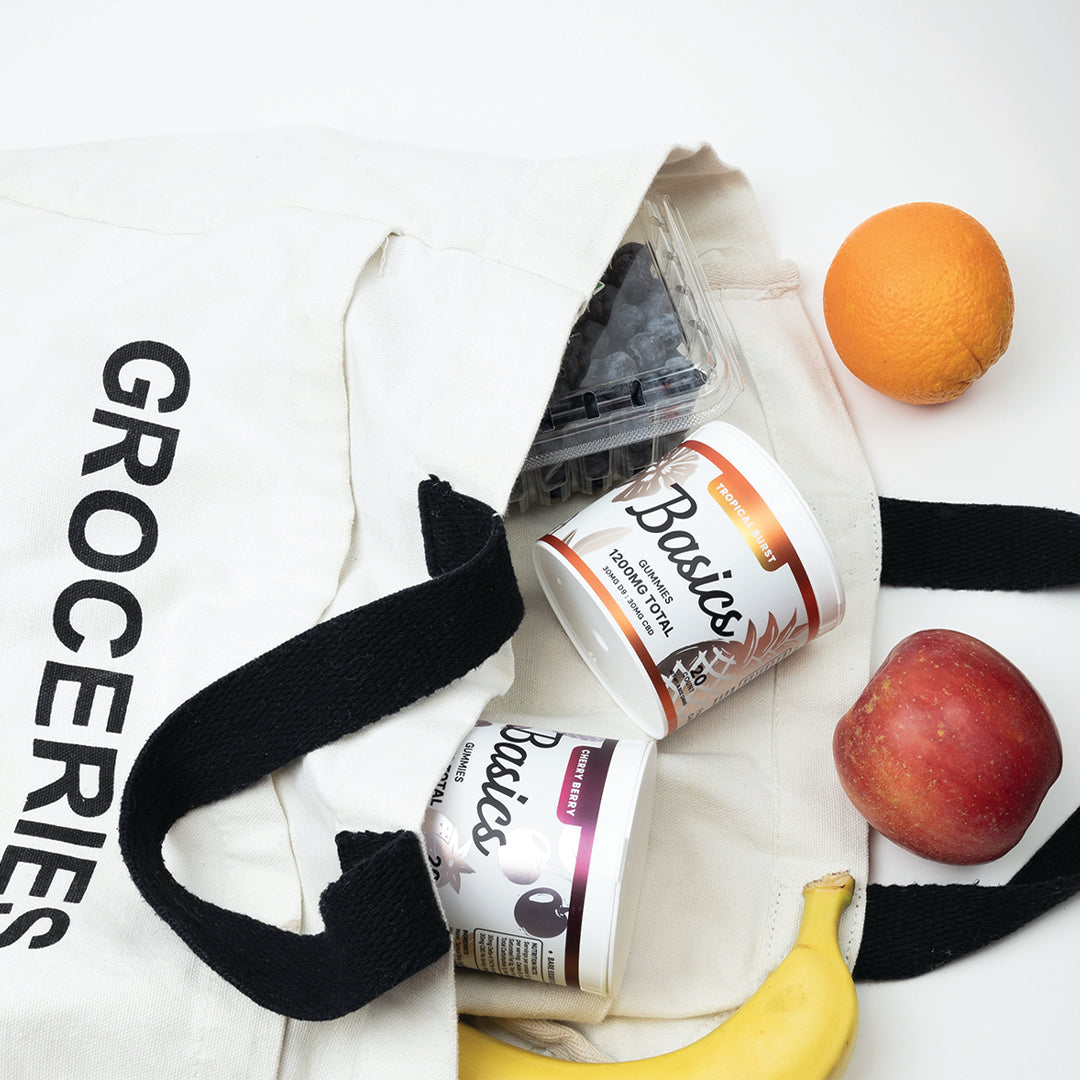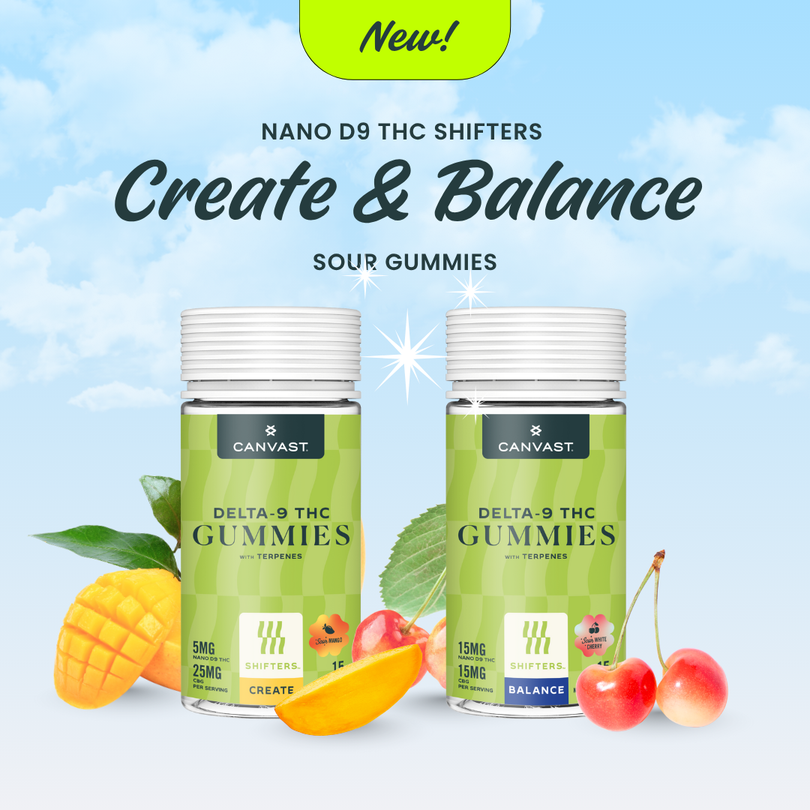Cannabidiol (CBD) is a naturally occurring compound found in the resinous flower of cannabis. CBD is one of more than a hundred “phytocannabinoids,” which are unique to cannabis and endow the plant with its robust therapeutic profile. Our body actually produces its own cannabinoids (called endocannabinoids). In infancy, our bodies source endocannabinoids from our mothers’ milk, to assist our underdeveloped ECS. Like all other bodily systems, our ECS grows less and less efficient as we age, and as the number of endocannabinoids our bodies synthesize decreases, our bodies slowly go out of balance. We become more prone to issues like insomnia or chronic anxiety as we become more cannabinoid-deficient. Reintroducing cannabinoids into our body in the form of phytocannabinoids (or plant-based cannabinoids) like THC or CBD could help our bodies regain their balance and general health.
Frequently Asked Questions for CBD
What is CBD?
What is CBD Hemp Flower?
CBD Hemp flower refers to the flowers of a female hemp plant that have been specially bred to contain high levels of cannabidiol (CBD) and low levels of tetrahydrocannabinol (THC).
While delta-9-tetrahydrocannabinol (THC) is the major active ingredient in marijuana, cannabidiol (CBD) is also obtained from hemp, which contains a very small amount of THC.
What is the difference between CBD and THC?
CBD is a safe, non-addictive substance, CBD is one of more than a hundred phytocannabinoids unique to the plant. Both CBD and THC have significant therapeutic attributes. But unlike THC, CBD does not make a person feel “stoned” or intoxicated. That’s because CBD and THC act in different ways on different receptors in the brain and body.
Does smoking CBD get you high?
CBD can actually lessen or neutralize the psychoactive effects of THC, depending on how much of each compound is consumed. Many people want the health benefits of cannabis without the high – or with less of a high. CBD does not get you high but we like to say - you can expect to experience a euphoric lift. Elevate your experience!
The fact that CBD is therapeutically potent as well as non-intoxicating, and easy to take as a CBD oil, makes it an appealing treatment option for those who are cautious about trying cannabis for the first time
What does CBD potentially help with?
- Autoimmune Diseases (Inflammation, Rheumatoid Arthritis)
- Neurological conditions (Alzheimer’s, Dementia, Parkinson’s, Multiple sclerosis, Epilepsy, Huntington’s chorea, Stroke, Traumatic brain injury)
- Metabolic syndrome (Diabetes, Obesity)
- Neuropsychiatric illness (autism, ADHD, PTSD, alcoholism)
- Gut disorders (Colitis, Crohn’s)
- Cardiovascular dysfunction (Atherosclerosis, Arrhythmia)
- Skin disease (Acne, Dermatitis, Psoriasis)
What mental disorders may CBD potentially help?
- Schizophrenia
- Chronic anxiety
- Social anxiety – CBD helps regulate the functions of the amygdala, which is responsible for our fear responses
- Insomnia
- Depression
- Drug addiction, alcoholism, and chain-smoking
- Epilepsy – it prevents and significantly decreases the number of seizures. Sufferers of severe childhood epilepsy have a 10-15% chance of near-complete cessation of their seizures upon taking CBD regularly. Even if they are unable to get rid of the symptoms completely, they can expect a significant improvement in their condition.
- Alzheimer’s disease – CBD helps remove beta-amyloid plaque, which is the biggest factor in the development of Alzheimer’s disease
- Post-traumatic stress disorder
How does CBD work?
CBD and THC interact with our bodies in a variety of ways. One of the main ways is by mimicking and augmenting the effects of the compounds in our bodies called “endogenous cannabinoids” - so named because of their similarity to compounds found in the cannabis plant. These “endocannabinoids” are part of what scientists refer to as the “endocannabinoid system.”
What is the Endocannabinoid System?
The endocannabinoid system plays a crucial role in regulating a broad range of physiological processes that affect our everyday experience – our mood, our energy level, our intestinal fortitude, immune activity, blood pressure, bone density, glucose metabolism, how we experience pain, stress, hunger, and more.
What happens if the endocannabinoid system doesn’t function properly? What are the consequences of a chronically deficient or overactive endocannabinoid system? In one word, disease. By modulating the endocannabinoid system and enhancing endocannabinoid tone, CBD and THC can slow – or in some cases stop – disease progression.
What is the Entourage Effect?
When we smoke or vaporize cannabis, our bodies take in hundreds of botanical compounds. Each one arrives with unique effects and benefits, and their behavior may change in the presence of other compounds. The combined effect of different compounds found in cannabis that work together as a whole to produce a greater effect than if working separately to produce separate effects. The role of terpenes and cannabinoids enhance the entourage effect and magnify therapeutic benefits. CBD and THC act together to boost benefits while subduing negative effects to deliver a balanced entourage effect.
What are Terpenes?
To answer this question accurately, one must first ask, what is a terpene? Terpenes are found everywhere in the world, not just the cannabis plant. There are several plant and insect classes that produce naturally occurring terpenes. Terpenes parade a range of characteristics, including flavor, aroma, and even medicinal properties. Scientists have discovered over 20,000 different terpenes in the world. While there are over 200 known terpenes in hemp, 60 are studied very carefully. Terpenes and terpenoids are a substantial class of compounds typically grouped together due to their distinctly similar hydrocarbon chain. The list of terpenes is exquisite, all stemming from the compound isoprene or more commonly known as isopentane, C₅H₈. Organic terpenes are found in the oils of most plants and insects, whereas terpenoids are chemically modified.
What is the legal status of CBD use in the US?
Any cannabis plant that has more than 0.3% Delta9 THC is considered to be marijuana, a Schedule I drug in the United States, which makes it more subject to restrictions. Many producers like us at Secret Nature curb these legalities by breeding industrial hemp that produces a lot of resin but has lesser amounts of Delta9-THC than the 0.3% legal limit. The popular claim that CBD oil is legal in 50 states is due to the fact that it can be sourced from plants other than the much-stigmatized and heavily-regulated marijuana.
In order to be sure about the legality of your planned CBD intake, make sure to consult your physician and your employers, know how your preferred CBD product is manufactured, and educate yourself on the legal status of cannabis products in your state.
What is the difference between the effects of CBD and THC?
The main difference between THC and CBD is the psychoactivity of THC. In layman’s terms, THC gives you the feeling of being high. CBD, however, does not. The effects of CBD, therefore, may not be as immediately apparent as those of THC.
CBD may give the body a sense of immense relaxation, and strains that are high in CBD are sometimes considered to be “couch-lockers” because of this. CBD consumption may make you sleepy, lazy, or calm, while THC will make you more alert or active. CBD may also have more prominent analgesic and muscle-relaxing effects than THC.
CBD is non-psychoactive because it does not directly interact with 2 of our body’s main cannabinoid receptors (CB1 and CB2). Instead, it inhibits the enzymes that break down naturally-occurring cannabinoids, leading to an increase in endocannabinoid presence and sensitivity.
What physiological disorders may be treated with CBD?
- Arthritis
- Multiple sclerosis - it significantly reduced symptoms of multiple sclerosis among test subjects in a randomized and placebo-controlled 2004 study
- Rheumatism
- Cancer – it increases breast cancer cell death and inhibits the invasion and metastasis (or spread) of lung cancer
- Chronic pain – CBD is a powerful analgesic when ingested, inhaled, or applied topically. When combined with THC, it significantly reduces pain
- Diabetes
- Drug-resistant infections
Are there side effects of taking too much CBD?
Thankfully, CBD is well-tolerated by the human body, and taking it even in high doses is safe. In fact, it is relatively better to have an abundant amount of CBD than have too little of it. Daily doses of up to 1500 mg can be taken safely for 4 weeks, or even longer for smaller daily doses.
How do I know if CBD is working?
CBD is not an end-all, cure-all type of product - meaning you can't just take CBD whenever you feel the need to expect all your problems to go away right away. Consistency is key and it is through this consistency that you'll truly know if it helps or not.
How do I find the right CBD varietal for my needs?
Finding the perfect varietal simply takes time and patience. Try everything we have to offer and see what leaves you feeling relaxed and smooth. Try consuming CBD in different ways to see which methods work best for you. CBD dosage is very user dependent and takes time to find the perfect CBD dose.


